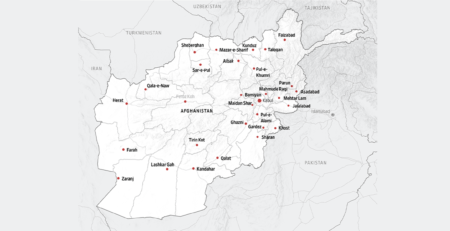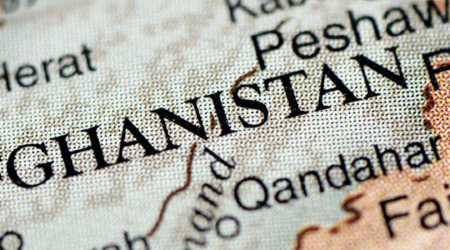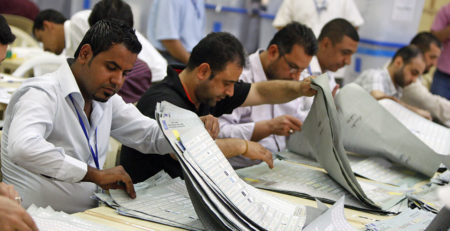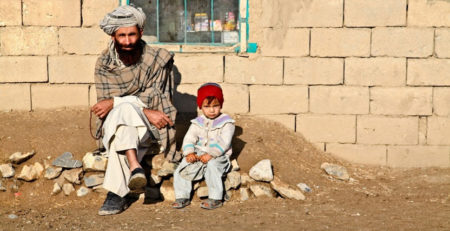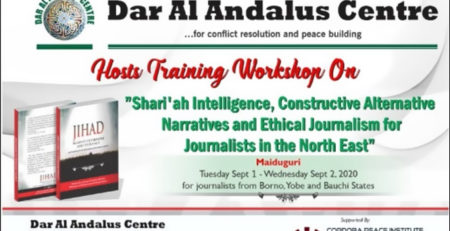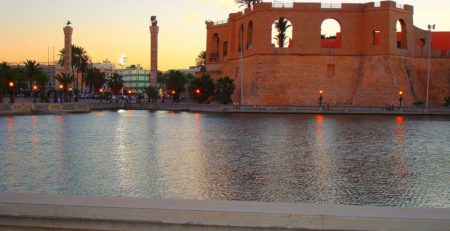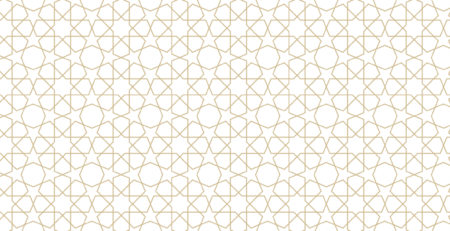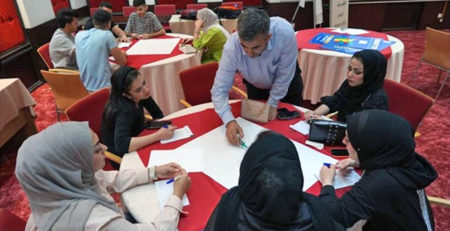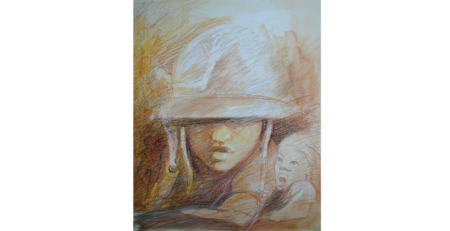After Idriss Déby: What Future for Chad?
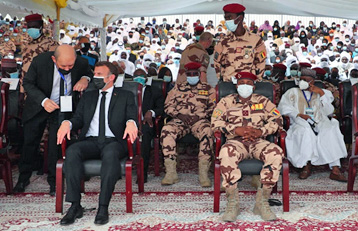
April 20, 2021 was marked by the death of Idriss Déby Itno, the man who, for the last thirty years, had occupied the position of President of Chad. This unexpected death, while Déby was – according to official (and contested) information – on the frontline, facing the rebels of the Front pour l’Alternance et la Concorde au Tchad (FACT), caused a shock that was not only felt within the country, but by all the other actors present in the Sahel region.
by Kilian Bello
April 20, 2021 was marked by the death of Idriss Déby Itno, the man who, for the last thirty years, had occupied the position of President of Chad. This unexpected death, while Déby was – according to official (and contested) information – on the frontline, facing the rebels of the Front pour l’Alternance et la Concorde au Tchad (FACT), caused a shock that was not only felt within the country, but by all the other actors present in the Sahel region. Idriss Déby, as head of state since the 1990s, offered a form of relative stability in a region generally used to regime changes, and was one of the major assets of the Western world in its fight against Salafi inspired armed groups in the Sahel. Having been part of the military before taking over power and continuing to endorse the role of military leadership during his mandates, Déby had, these last years, hugely invested in the country’s armament, to the point where Chad had become the regional military power (1). For this reason, Chad was the most important element of the G5 Sahel and a major ally for France as part of Operation Barkhane. The fall of the head of state therefore leads to some uncertainty concerning the future of Chad and of the region, already tormented by many rebellions and armed insurgencies.
An outraged civil society
First of all, the transition of power brings sharp tensions within Chad itself. Indeed, contrary to the stipulation of the Chadian constitution, according to which it is the president of the parliament who should take over the presidency during a period of transition, a Transitional Military Council (TMC) has been created with Mahamat Déby, general and son of the deceased President, as head of the Council. Furthermore, the period of transition, supposed to last 90 days, has now been fixed at 18 months. Even though the creation of the TMC was announced with the promise of free and fair elections at the end of the transition period, civil society and the Chadian opposition have heavily criticized the lack of respect for the constitution and fear that the army may object to actually giving back its power to a civilian government, which would lead de facto to a Déby dynasty (2). This fear is not unfounded. Idriss Déby has, throughout his reign, promised not to present himself at the following election, only to renege on his promise every time, on the pretext that the situation was not favorable for his departure from power (3). Hence, it would not seem unlikely for this strategy to be applied once again and that the promise of free elections be given up at the end of the transition period, once the TMC has found an excuse to remain in power.
As proof of the anger of the population with the seizure of power by the army, violent demonstrations denouncing a coup broke out after the announcement of the creation of the TMC. These demonstrations, harshly repressed, resulted in the death of five demonstrators on April 27 and are still going on at the time of writing, despite their prohibition (4). The TMC, probably attempting to ease the tensions, named several members of the opposition to join the government. Among them is the former presidential candidate, Albert Pahimi Padacké, appointed to the post of prime minister. Yet, it is a post he had already occupied between 2016 and 2018 while Déby was in power, and even though he has since joined the opposition, it seems this was not enough to convince Chadians of the inclusivity of the transition (5). Indeed, even if opposition members were invited to join the new government, the transition charter – created by the TMC – gives almost absolute power to Mahamat Déby, who can appoint and remove as he wishes the prime minister as well as the members of the TMC, the government, and the parliament (6). Hence, the political plurality promoted by the TMC seems to be a tool at the service of the legitimation of power rather than a truly democratic process.
A divided army
In addition to civil society, the military sector may also be an issue for the stability of the country. The Chadian army inherited by Mahamat Déby, regularly accused of human rights violations (7), is yet considered to be one of the most powerful ones in French speaking Africa (8). This factor may lead one to believe that, in regard to the tensions within the civil society, the army would be a guarantee of stability for the regime. However, it seems that the army is also facing more and more intense discontent that may question its reliability. A document by the International Crisis Group, published in January 2021, reports troubles within it, notably caused by differences in treatment, mostly favorizing soldiers of the Zaghawa community, the ethnic group of the deceased President (9). The risk of fragmentation of the army along ethnic lines is seriously considered, especially since the FACT, mostly composed of members of the Gorane ethnic group, is accusing the TMC of ethnic cleansing against its community (10). All of this may have huge implications for the country as well as for its commitment in the fight against the armed groups of the region. The admiration of the soldiers for the former President, who had made his role as military leader one of his main campaign arguments, also enabled him to win an aura among his men, thus establishing him as the guardian of the army’s unity (11). The death of Déby, described by his backers as a “charismatic leader”, may therefore be the blow that breaks this fragile cohesion, since the vacuum left behind him will be hard to fill by his son, a member of the army as well, but described as very discreet (12). Hence, the army seems in dire need of ambitious reforms that would actually make it meritocratic, but to launch such a program immediately after gaining power may prove fatal for the new head of state, especially since this system favors his closest allies.
A contested legacy
Mahamat Déby’s family circle is also an environment favorable to tensions. Indeed, it seems that Mahamat was not the only son to have claims to the presidency. Following the announcement of the TMC’s creation, Chadian media reported that a dispute concerning Déby’s succession broke out between Mahamat Zakaria, another son of the former president, leading to a shooting inside the presidential palace (although this information was denied by the government) (13). This family rivalry creates fears that Zakaria may not be satisfied to be set aside from power in favor of his brother, and that he may try to overthrow him. Another important member of the familial clan, Hinda, the powerful widow of Déby, has played a key role at the top of the state, possessing significant influence over the appointment of ministers, thus placing many members of her family in power and even occupying the functions of the presidency when Déby was ill (14). This power, which has the potential to overshadow Mahamat, might worry the new head of state. She has no longer appeared in public after Déby’s funeral, probably aware that she now has to lay low. The tensions within Déby’s clan are therefore serious and it is not unlikely that members feeling wronged by the aftermath of Déby’s death may try to take power. Familial wars are not unknown in Chad, and already Déby in his time had to fight a rebellion led by his own nephew.
Sahel awaiting
At the regional level, uncertainties concerning the power transition in Chad create some concern. Chad, under the presidency of Idriss Déby, knew how to become essential in the region by sending its troops beyond its borders. During these last few years, the Chadian army fought in Northern Mali, on most crucial frontlines, was sent into the Lake Chad region following a request from Nigeria, and in February 2021, sent a new detachment of soldiers in Mali, Niger and Burkina-Faso, in the three-borders area (15). The country is therefore very militarily present to support its neighbors. The TMC, being made up of high-ranking military officials, seems to indicate that Chad’s foreign policy should maintain the same logic. But the troubles that are facing Chad at the moment lead some of its allies to fear the possibility of a return of its troops within its borders in order to protect its own territory from the attack of the FACT or from the tensions created by the regime change. This would lead to a security vacuum in the region that other actors would find hard to fill, Chad being the only country that not only had the will but the power necessary to contain the different regional threats.
However, an overly ambitious return of troops stationed abroad may put Chad in difficulty on the international stage. Indeed, it is due to its role as an essential regional ally against armed groups that the international community, and France in particular, has until now decided to mainly ignore regular accusations of human rights violations, rigged elections or the obvious lack of resources invested in the development of the country (Chad’s HDI ranks it as 187th out of 189 countries according to the Human Development Report 2020 (16)) (17). Some observers thus argue that a potential national withdrawal by Chad in order to secure its territory would diplomatically isolate it as a consequence (18). The international community, losing a key ally, would not have to spare the regime from different criticisms and sanctions, therefore weakening it even more.
Too important an ally
However, it seems unlikely that Western states such as France would take measures that could contribute to destabilizing the Chadian regime. The reason why international interventions such as Operation Barkhane are being conducted in the Sahel is, among other things, to prevent the possibility that a “new Libya” be created. In the case where the TMC was overthrown and that a civil war broke out, France would not only lose its most trusted ally of the region but would also see the creation of a new fertile ground for armed groups, leading the area to new levels of instability. The example of the FACT, which, while based in Libya, managed to generate a crisis in Chad, shows how the existence of failed states can be dangerous and hazardous for a whole region. Hence, to France, what is at stake is certainly not summarized by the simple survival of an unconstitutional regime, but by the future of a region in which it has been involved for several years. The response of President Macron at the announcement of Déby’s death and of the creation of the TMC seems to favor this view, Paris having chosen to recognize the authority of the TMC and having emphasized the need for a peaceful transition rather than for the respect of democratic principles. Furthermore, during the funeral of Déby, at which the French President was present, Paris reiterated its support for Chad, by stating that “France will never let anyone, neither today nor tomorrow, challenge the stability and integrity of Chad” (19). Support for the regime in case of difficulties is therefore to be expected.
Chad’s future, and thus that of Sahel, is therefore now being severely challenged and, because of the many tensions that face the country, the transition period ahead will be unpredictable to say the least. Finally, this situation can be explained by the lack of respect for the rule of law, by the weak development of the country and by the unconditional support granted by Western powers. It is hard to imagine that increased pressure from the international community over Déby’s régime would not have eased the instability that now prevents the country from going through a peaceful transition period. But the régime managed to become crucial to the point where its Western allies preferred to ignore its authoritarianism and the failures of the state.
Beyond the armed force
It is important to note that even in the case where Chad does not succumb to its internal conflicts, the military solution chosen until now will not suffice on its own to stabilize the region in the long term. After thirty years of Déby’s reign, Chad has remained one of the poorest countries in the world, and, in a state where political alternance and economic development are inexistent, this can only incite some parts of society to take the path of violence. Rebel groups that destabilize the country legitimize their action by the – acknowledged – impossibility to reach power democratically. Therefore, the country now needs to propose some political alternance and it seems more necessary than ever for the international community to put pressure on the TMC in order to launch a truly inclusive national dialogue, in agreement with the opposition and politico-military groups present in the country. This could lead to elections that would allow Chad to experience a peaceful and legitimate transition for the first time.
Kilian Bello
References
(1) Chad leader’s death deprives West of key security ally
https://www.france24.com/en/live-news/20210420-chad-leader-s-death-deprives-west-of-key-security-ally
(2) Tchad : le ministère de la Sécurité interdit les manifestations
https://www.alwihdainfo.com/Tchad-le-ministere-de-la-Securite-interdit-les-manifestations_a103092.html
(3) Les défis de l’armée tchadienne
https://www.crisisgroup.org/fr/africa/central-africa/chad/298-les-defis-de-larmee-tchadienne
(4) Tchad : la police disperse des manifestants à coups de gaz lacrymogène, plusieurs blessés
https://www.france24.com/fr/afrique/20210508-tchad-la-police-disperse-des-manifestants-%C3%A0-coups-de-gaz-lacrymog%C3%A8ne-plusieurs-bless%C3%A9s
(5) TCHAD : déjà un premier ministre
https://ledjely.com/2021/04/27/tchad-deja-un-premier-ministre/
(6) Tchad : le Conseil militaire de transition doit revoir sa copie
https://www.jeuneafrique.com/1172245/politique/tribune-tchad-le-conseil-militaire-de-transition-doit-revoir-sa-copie/
(7) Sahel counter-terrorism takes a heavy toll on civilians
https://www.africaportal.org/features/sahel-counter-terrorism-takes-heavy-toll-civilians/
(8) Idriss Déby, l’encombrant allié de la France
https://www.courrierinternational.com/article/deces-idriss-deby-lencombrant-allie-de-la-france
(9) Les défis de l’armée tchadienne
https://www.crisisgroup.org/fr/africa/central-africa/chad/298-les-defis-de-larmee-tchadienne
(10) Le chef de la rébellion qui a tué Idriss Déby accuse la France de soutenir « une dictature, un coup d’état »
https://www.connectionivoirienne.net/2021/05/18/le-chef-de-la-rebellion-qui-a-tue-idriss-deby-accuse-la-france-de-soutenir-une-dictature-un-coup-detat-el-pais/
(11) Tchad : quels risques après la mort d’Idriss Déby ?
https://www.crisisgroup.org/fr/africa/central-africa/chad/tchad-quels-risques-apres-la-mort-d-idriss-deby
(12) FACT : qui sont les rebelles tchadiens et que veulent-ils ?
https://www.bbc.com/afrique/region-56833762
(13) Idriss Deby Itno: les querelles de famille intensifient les tensions de la transition au Tchad
https://www.bbc.com/afrique/region-40343707
(14) Chad family feud intensifies transition tensions after Idriss Déby’s death
https://www.bbc.com/news/world-africa-56850715
(15) Chad facing hard choices as anxious allies ill-prepared
https://www.chathamhouse.org/2021/04/chad-facing-hard-choices-anxious-allies-ill-prepared
(16) Rapport sur le Développement Humain 2020
http://hdr.undp.org/sites/default/files/hdr_2020_overview_french.pdf
(17) Chad facing hard choices as anxious allies ill-prepared
https://www.chathamhouse.org/2021/04/chad-facing-hard-choices-anxious-allies-ill-prepared
(18) Chad facing hard choices as anxious allies ill-prepared
https://www.chathamhouse.org/2021/04/chad-facing-hard-choices-anxious-allies-ill-prepared
Death of Chad’s President Could Worsen Security Situation in West Africa
https://theglobalobservatory.org/2021/04/death-chad-president-could-worsen-security-situation-west-africa/
(19) Tchad: Emmanuel Macron et les présidents du Sahel évoquent la transition civilo-militaire
https://www.rfi.fr/fr/afrique/20210423-tchad-le-pr%C3%A9sident-macron-et-les-pr%C3%A9sidents-du-sahel-%C3%A9voquent-la-transition-civilo-militaire





